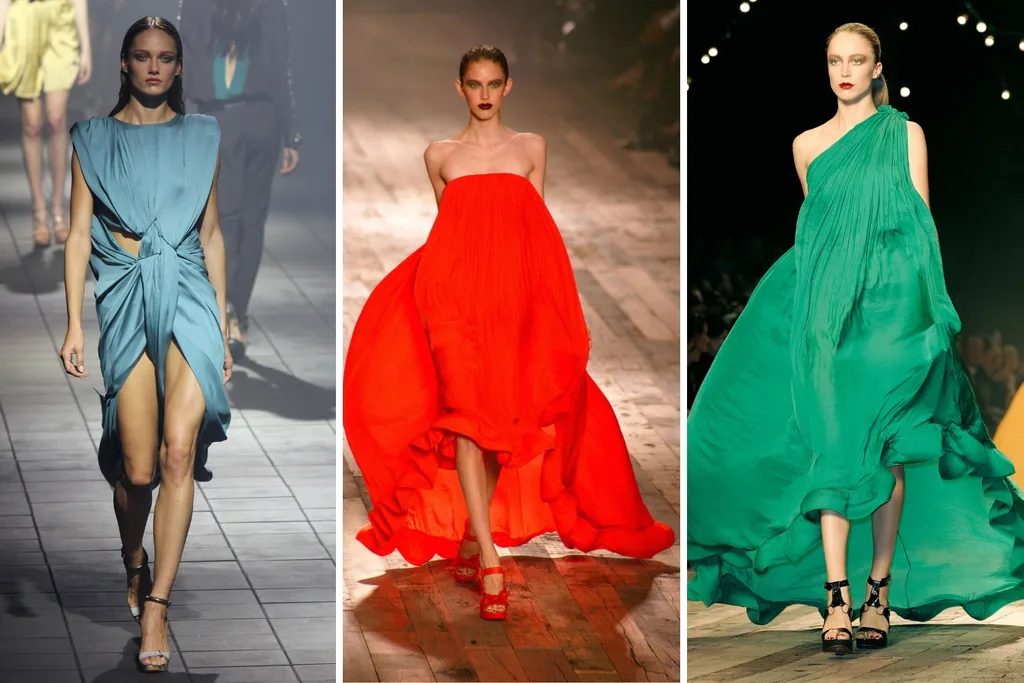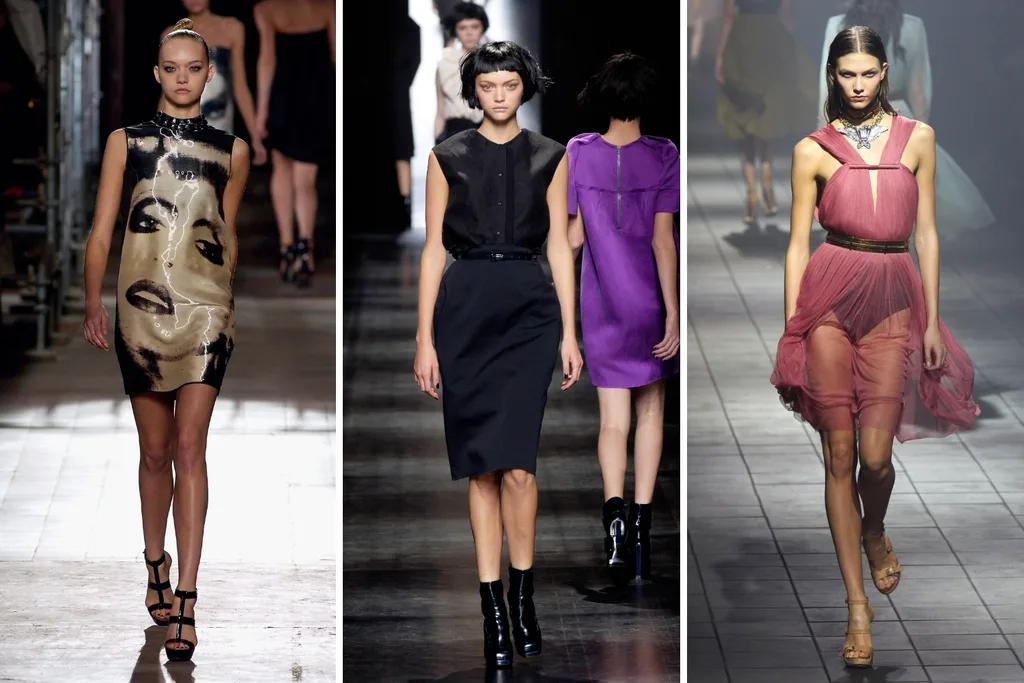Alber Elbaz did things differently.
The designer, who passed away aged 59 from COVID-19 complications on Sunday evening, has been remembered in the days following as a person who embodied joy, brought a playfulness to his work and above all, was a designer who truly loved women. In fact, what distinguished him from others was not just a love for women, but the ability to truly see them. In fashion, that distinction makes all the difference. And it’s why his passing is, in a way, a loss for women, and should be remembered when we consider how fashion should – and could – serve us.
Born in Morocco, Elbaz spent his childhood fascinated with clothes. In her tribute, Sarah Mower remembered him once telling her: “We didn’t have money for toys. The only thing my parents had in the house was a chess set. When I was little, I took my father’s silver foil and started to make dresses for all the chess pieces—I made up characters for them and played with them for hours.”
Following a move to Israel and compulsory stint in the Israeli Defence Force, Elbaz studied at the Shenkar College and then moved to New York where he worked under Geoffrey Beene in his atelier. Beene was known for unexpected combinations of fabric and colour, and under him, Elbaz learnt the tools and technique required to be a dressmaker in the truest sense. He went on to serve as Creative Director of Guy Laroche in 1996 and then Yves Saint Laurent in 1998, before landing at Lanvin in 2001.

He helmed Lanvin as Creative Director ‘til 2015, and in that time set himself apart from other designers for an innate understanding of the inner lives of women, and how that influences the way we dress. Often, we see or hear designers talk about being inspired by their love of women, but in many cases they prioritise – or are just more interested in – the artistic aspect of fashion and the craft. This results in beautiful clothes, no doubt, but ones we can rarely see ourselves wearing in our day-to-day lives.
A thread that is woven through all of the remembrances of the designer is the sense that he demonstrated a relentless dedication to caring about his work and the impact it had on the lives of the wearer – most often women. He famously once said: “If it’s not edible, it’s not food. If it’s not wearable, it’s not fashion.”
Elbaz was different in that he conceptualised his role as designer as being underpinned by service; always thinking about how to make women more beautiful and their lives more comfortable. Famous for dressing the likes of Tilda Swinton and Meryl Streep on the red carpet, Streep said that she continued to turn to Elbaz for looks because, “On the important occasions when it becomes necessary for me to become ‘Meryl Streep’—that outsize, overpraised monument to the changing status of women in the cinema and the world—that’s when I need Alber the most. He is undaunted by all of it—my insecurities, my weight…my height, my age. He just makes me feel lovely.”

Later, when reflecting on his work and career, he referenced Streep’s comments and added: “I’m not trying to transform anyone. I’m just trying to make everyone, as much as I can, a better version of themselves.”
His project following his departure from Lanvin further exemplified his dedication to women and always making clothes that worked for them, not against. Named AZ Factory, the first collection was titled “My Body” and comprised of ergonomic, sports-inspired dresses that came in sizes from XXS to XXXXL. He wanted to innovate, and push for a fashion world that always had real women in mind.
Not all fashion needs to be guided by modernity in the way Elbaz was, or by a consideration for the practical realities of women’s lives. But too often we forget that fashion should serve us as much as it should inspire us. Designers who do manage to both are rare gems, and that’s exactly what Alber Elbaz was.










